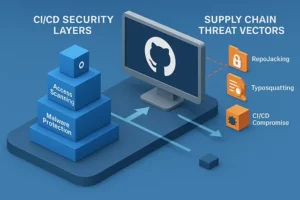Understanding Blockchain Technology: Benefits, Applications, and Future Trends

Welcome to our comprehensive guide on blockchain technology. In this article, we will explore the fundamental concepts, benefits, and applications of blockchain technology, as well as discuss the future trends shaping its evolution. From cryptocurrencies to supply chain management and healthcare records, blockchain has the potential to revolutionize various industries. By gaining a deeper understanding of this transformative technology, you can leverage its power to stay ahead in the rapidly evolving digital landscape.

Introduction to Blockchain Technology
Blockchain technology is a distributed ledger system that enables secure and transparent transactions without the need for intermediaries. It originated with the advent of Bitcoin in 2008, when an anonymous person or group known as Satoshi Nakamoto introduced the concept. Since then, blockchain technology has expanded beyond cryptocurrencies, finding applications in various sectors.
The underlying principle of blockchain technology lies in its decentralized nature. Instead of a central authority controlling the transactions, the blockchain operates through a network of participants known as nodes. Each transaction is recorded in a block, and these blocks are linked together to form a chain, creating a transparent and immutable record.
Basic Concepts of Blockchain Technology
To understand blockchain technology, it is essential to grasp its basic concepts. Each block in the blockchain contains a set of transactions, along with a unique identifier called a hash. The hash serves as a digital fingerprint, ensuring the integrity of the block and preventing unauthorized modifications. Additionally, each block contains the hash of the previous block, creating a chronological chain of blocks.
Blockchain operates on a peer-to-peer network, where each node has a copy of the entire blockchain. This decentralized architecture enhances security by eliminating a single point of failure. Moreover, cryptographic techniques, such as hashing and digital signatures, ensure the authenticity and confidentiality of transactions.
Consensus mechanisms play a crucial role in maintaining the integrity of the blockchain. These mechanisms enable nodes to agree on the validity of transactions and the order in which they are added to the blockchain. Popular consensus algorithms include Proof of Work (PoW) and Proof of Stake (PoS).
Benefits and Advantages of Blockchain Technology
Blockchain technology offers numerous benefits that make it appealing to industries across the board. One of its key advantages is transparency. The decentralized nature of the blockchain ensures that all participants have access to the same information, promoting trust and reducing the risk of fraud. This transparency is particularly valuable in sectors such as finance and supply chain management, where traceability and accountability are paramount.
Another significant advantage is the security and immutability of blockchain. Once a transaction is recorded on the blockchain, it becomes nearly impossible to alter or tamper with it. This feature makes blockchain a secure platform for storing sensitive data, such as healthcare records or identity information.
Blockchain technology also holds the potential for increased efficiency and cost savings. By eliminating the need for intermediaries and manual reconciliation processes, blockchain streamlines transactions, reduces paperwork, and minimizes administrative costs. Additionally, smart contracts, which are self-executing contracts with predefined conditions, automate and enforce agreements, further enhancing efficiency.
Enhanced traceability is another benefit of blockchain technology. In supply chain management, for example, blockchain can track the journey of products from their origin to the end consumer, ensuring authenticity, quality, and fair trade. Similarly, blockchain-based identity management systems can provide individuals with control over their personal information, reducing the risk of data breaches.
Applications of Blockchain Technology
Blockchain technology has diverse applications across various industries. One of its most well-known applications is in the realm of cryptocurrencies and digital assets. Blockchain enables secure and transparent peer-to-peer transactions, eliminating
the need for traditional financial intermediaries. Bitcoin, the first cryptocurrency, paved the way for a multitude of digital currencies that leverage blockchain technology for secure and efficient transactions.
Supply chain management is another area where blockchain technology has transformative potential. By tracking products at each stage of the supply chain, blockchain ensures transparency, reduces fraud, and improves the efficiency of processes like inventory management and quality control. It provides consumers with the ability to verify the authenticity and origin of products, enhancing trust in the supply chain.
In the healthcare industry, blockchain technology can revolutionize medical records management. By securely storing patient information on the blockchain, healthcare providers can ensure data integrity, protect patient privacy, and facilitate seamless sharing of records between different healthcare providers. This streamlines healthcare processes, improves patient care, and enhances medical research and development.
Identity management is another area where blockchain technology can have a significant impact. Traditional identity systems often suffer from security vulnerabilities and centralized storage of sensitive information. Blockchain-based identity management systems provide individuals with control over their personal data and enable secure and decentralized identity verification, reducing the risk of identity theft and fraud.
Blockchain technology also holds promise for transforming voting systems. By leveraging blockchain’s transparency, immutability, and decentralized nature, it becomes possible to create secure and tamper-resistant voting systems. This ensures the integrity of elections, reduces the potential for fraud, and increases public trust in the democratic process.
Additionally, smart contracts are a powerful application of blockchain technology. Smart contracts are self-executing agreements that automatically execute predefined actions when specific conditions are met. They eliminate the need for intermediaries, reduce the risk of contract disputes, and enable the automation of various processes, such as insurance claims, supply chain agreements, and financial transactions.
Challenges and Limitations of Blockchain Technology
While blockchain technology offers immense potential, it is not without challenges. Scalability is one of the major concerns, as the current blockchain infrastructure faces limitations in processing a high volume of transactions. As blockchain networks grow, scalability solutions need to be developed to ensure efficient and fast transaction processing.
Energy consumption is another challenge associated with certain blockchain implementations, particularly those that rely on energy-intensive consensus mechanisms like Proof of Work. Addressing the environmental impact of blockchain technology is crucial for its long-term sustainability.
Furthermore, regulatory and legal considerations pose challenges to the widespread adoption of blockchain technology. As blockchain operates across borders, it raises questions about jurisdiction, privacy laws, and compliance requirements. Establishing regulatory frameworks that strike a balance between innovation and consumer protection is essential.
Interoperability is another limitation in the blockchain space. With multiple blockchain platforms and protocols, enabling seamless data exchange and interoperability between different systems becomes crucial for unlocking the full potential of blockchain technology.
Future Trends and Developments in Blockchain Technology
The future of blockchain technology is promising, with several emerging trends and developments on the horizon. Integration with the Internet of Things (IoT) holds great potential, as blockchain can enhance the security, privacy, and efficiency of IoT networks. By leveraging blockchain’s decentralized nature, IoT devices can securely interact and exchange data without relying on a central authority.
The integration of blockchain with Artificial Intelligence (AI) and Machine Learning (ML) is another exciting prospect. Combining the capabilities of blockchain and AI/ML can enable advanced data analytics, enhance predictive models, and automate decision-making processes in various industries.
Inter-Blockchain Communication Protocols (IBC) are being developed to enable seamless communication and interoperability between different blockchain networks. This will facilitate the exchange of assets, data, and services across multiple blockchains, unlocking new possibilities for collaboration and innovation.
Moreover, Central Bank Digital Currencies (CBDCs) are being explored by various central banks as a way to digitize fiat currencies using blockchain technology
and improve the efficiency of traditional financial systems. CBDCs can enable faster and more secure transactions, reduce costs associated with cash handling, and enhance financial inclusion by providing access to digital financial services for underserved populations.
Conclusion
In conclusion, blockchain technology has the potential to revolutionize industries by offering transparency, security, efficiency, and accountability. From cryptocurrencies and supply chain management to healthcare records and identity management, blockchain has diverse applications that can streamline processes and enhance trust. However, challenges such as scalability, energy consumption, regulatory considerations, and interoperability need to be addressed for widespread adoption. As we look to the future, integrating blockchain with IoT, AI/ML, developing inter-blockchain communication protocols, and exploring CBDCs are key trends shaping the evolution of blockchain technology. Stay informed, adapt to changes, and explore innovative use cases to unlock the full potential of this transformative technology.
And for those of you who want to grow your Instagram account, you can directly use our service free instagram followers and you can like your post on instagram with Free instagram likes feature







